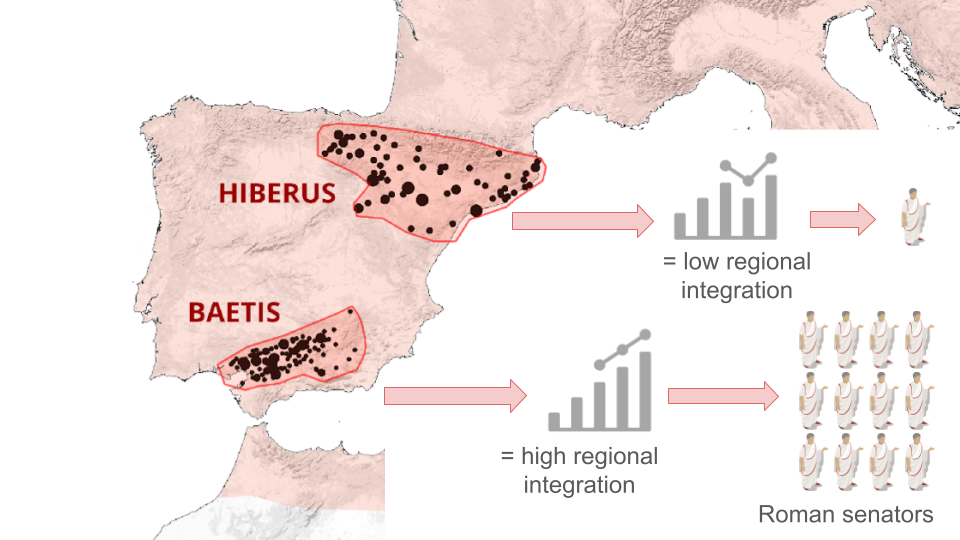— This project is funded by a VENI award (VI.Veni.241F.038) funded by the NWO —
The benefits of the Roman Empire were distributed geographically very unevenly. While elites from some regions managed to penetrate the central power structure in large numbers, thus boosting their wealth and power, others lagged behind. This research shows that variations in economic integration within regions underpinned these different outcomes between regions. These historical patterns shed new light on the uneven regional development in today’s globalised world.
The main challenge of modern globalisation is the uneven spread of its benefits across the world. By examining similar geographical inequalities in the Roman Empire (c. 1–250 CE), this project offers historical perspectives into these contemporary issues.
The political unification of the Mediterranean world under Roman rule created opportunities for local elites. The positions of power in the imperial administration are a case in point. Local elites could however access these positions (e.g. senatorial offices) only if they owned sufficient wealth. To acquire the substantial amounts needed, they had to extend their economic activities beyond their local town. Consequently, only elites from well-integrated regions could accumulate enough wealth to benefit from empire. This study therefore aims to show that variations in regional economic integration underpinned the uneven distribution of the benefits of the Roman imperial project.
Previous studies on economic integration in the Roman Empire adopt supra-regional perspectives that consequently overlook regional variation. This project introduces an interdisciplinary approach that enables regional comparisons. I will adapt and improve a method from Economic Geography to estimate the level of economic integration based on settlement sizes. This innovative methodology allows me to estimate the level of integration within different regions of the Roman Empire. I compare these estimates to the benefits elites in each region gained from the empire, using the number of senators originating from each region as a measure.
I hypothesise that the differences in levels of integration within regions are linked to how much local elites in those regions benefited from being part of the Roman Empire. Drawing parallels with modern globalisation, these results reveal the significant historical depth, and potential structural nature, of unequal regional development in a globalised world.

One of the aims of the project is to collect and integrate the available data on the size (inhabited area) of Roman settlements. A ‘living’ repository is being developed which allows scholars not only view and download the material that has been collected in the project but also to make suggestions for additions to the collection (for example based on their own research). Here is a prototype of this repository.

For more information, please contact me.
